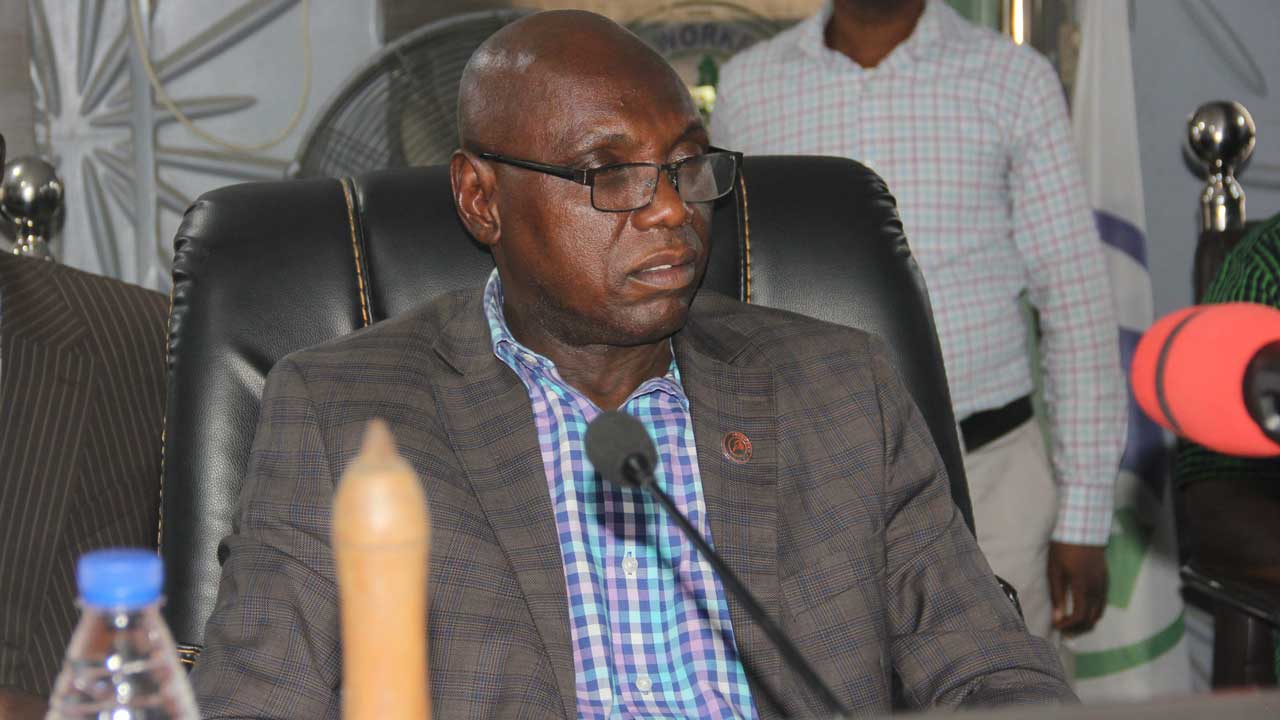
The National Coordinator, Port Standing Task Team (PSTT), Moses Fadipe, has lamented a series of complaints and barriers to ease of doing business at the seaports.
He said despite the progress made to eliminate corruption at the nation’s ports, there are still hindrances at all stages attributable to both officials of government and the private operators.
Fadipe stated this at a two-day seminar on implementation of Nigerian Port Process Manual (NPPM) held at the Nigerian Shippers’ Council (NSC) corporate headquarters in Apapa, Lagos, tagged: ‘Global Best Practices in Port Operations and the Industry Perspective.’
He said there are still boarding officers, who are in the habit of misinterpreting the rules of engagement aboard vessels where minor matters of procedures are escalated to penalty levels, leading to what most have considered to be extortion.
The PSTT boss said in many cases, such issues lead to vessels delay at berth and accumulation of demurrage.
He said, unfortunately, the aggrieved parties in these incidents are often expatriates, who end up leaving the shores of the country with negative impressions.
Fadipe disclosed this while giving an overview/feedback of the Nigerian Port Process Manual (NPPM) implementation since inception.
According to Fadipe, there are adverse trends at the terminals by cargo examiners, one of which is flagrant disregard to Joint Cargo Examination commencement time.
He said the NPPM stipulates that cargo examinations should start by 9:00am, but the average time of commencement is 1:00pm where some officials arrive at the terminal as late as 3:00pm, whereas examinations are stipulated to stop by 4:00pm.
Fadipe pointed out that the joint boarding and timeline for inspections, put in place to reduce inspection time and number of incidents reports, would be progressively saving the economy huge amounts of money from demurrages and other losses.
He said the team is aiming to improve the level of compliance by terminal operators, shipping companies, importers, exporters, freight forwarders and government agencies in order to reduce cargo dwell time thereby improving the trade cycle generally.
Fadipe also pointed at another practice that questions ethics at the cargo examination exercise, which is the issue of excessive samples where large cargoes (Quantity) are taken by government agencies, as well as officials, who do not have statutory powers for sampling in the first place.
He said this practice is very rampant and will require stringent actions by all agencies involved to tackle it more effectively.
Fadipe said the NPPM highly respects the existing Standard Operating Procedures (SOPs) of various government agencies that are operating in the ports, noting that it is an emergency mechanism to strengthen existing SOPs for greater effectiveness.
He said the manual has neither come to invalidate any of the existing standard procedures or to limit the force of their authority, adding that it was designed as a zero-tolerance policy on wastefulness and corruption, which is the ultimate reason for the Executive Order on ease of doing business in the ports.
He added that the manual is being promoted by the Federal Government as a good governance tool to guard against barriers to smooth trade and to elicit investors’ confidence in the economy as well as enhance the country’s perception among the comity of nations.
“The task team is inspired by the manual in the pursuit of a vision for an ideal cargo examination that is conducted in the most professional manner devoid of unskillfulness and compromises. This would be such that there will not even be the need to have manpower and valuable work hours wasted at the port corridors in the guise of surveillance and investigation,” he said.
Also, Fadipe stressed that specialised civil society in the industry and private operators may be viewing agencies of government as too preoccupied with the idea of stopping trucks outside the ports for investigations.
He said the PSTT, as representatives of the government, is challenged to look inward its internal mechanisms to identify personnel that are compromising at cargo examinations, leading to the high rate of intelligence reports that warrant stoppages on the roads and bridges of the ports corridor.
Fadipe noted that if it were a case of unskillfulness, it would be necessary that the capacities of the examination officials be built properly, adding that it will serve to enhance the corporate image of the respective organisations.
The PSTT boss said to ensure the gains at the rummaging and cargo examinations are not eroded through nefarious activities within the port corridors, an enlarged task team comprising different security outfits was constituted to rid the corridors of extortions, gridlocks and shanties through the exercise” “Operation Free the Port Corridors.”
He said different innovative measures have been put in place for a successful implementation, which include, advocacies, intelligence gathering and introduction of registers for monitoring examiners.
On his part, the Executive Secretary/ Chief Executive Officer, Nigerian Shippers’ Council (NSC), Emmanuel Jime, said implementation of the manual has facilitated ease of doing business in the nation’s ports and has drastically reduced corruption tendencies.
He said the overview of the manual and conversations on obligations of various stakeholders, mode of terminal operations, shipping operations, attitude of truckers and role of dock workers as enshrined in the manual, will provide beneficial information to add to stakeholders knowledge of the sector to foster operational efficiency in line with global best practices.
Jime said a proper understanding and application of the manual would bring about cost-effectiveness, reduction of waste, while maintaining quality of service.
He said it would also bring about transparency in the conduct of port businesses, which will produce trust and goodwill, while safeguarding the industry’s reputation among investors, partners, customers, and other stakeholders.
The NSC boss stated that if relevant stakeholders and authorities comply with approved standards and rules as enshrined in the manual, challenges faced today will automatically ease off and pave the way for seamless operations at the nation’s seaports.



